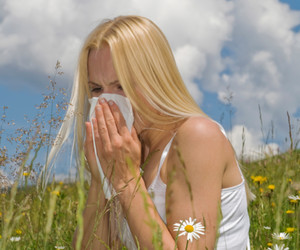It is peak grass pollen season, and lots of people are sneezing, wheezing and rubbing their eyes.
For most people hay fever (seasonal allergic rhinitis) is a mild condition that is little more than a nuisance and can be controlled with an antihistamine. For some it makes summer a misery.
People with severe hay fever may dread outdoor activities like sports or picnics. Sitting inside with the windows closed is no fun in this weather. Hay fever can also severely affect concentration at work and at school (not a good thing during your GCSEs).
1. Only use non-drowsy antihistamines (cetirizine, loratidine and acrivastine*)
2. Use a steroid nose spray daily (beclometasone and fluticasone sprays*)
3. Try to avoid using decongestants regularly – they are fine to use occasionally, but can make rhinitis worse if used often.
4. Pollen avoidance can help:
- Wash hair before bed so that the pollen in your hair doesn’t get on the pillow.
- Get the washing in before the pollen begins to settle in the evening.
- Wear wrap around sunglasses to stop pollen getting into the eyes.
- A little Vaseline around the inside of your nostrils can trap some of the pollen.
- Saline rinses can wash some of the pollen out of your nose after you’ve been out.
For severe hay fever, immunotherapy (hay fever injections or tablets) can help to control symptoms – it’s too late to start this year, but ask your GP about referring you to our immunotherapy clinic (or other local allergy clinic) to see if this would be suitable for you for next season.
Lots more advice is available from allergy websites such as Allergy UK’s.
*Available without prescription, but do check with your chemist if you are taking other medications
See today’s Met Office Pollen Forecast





